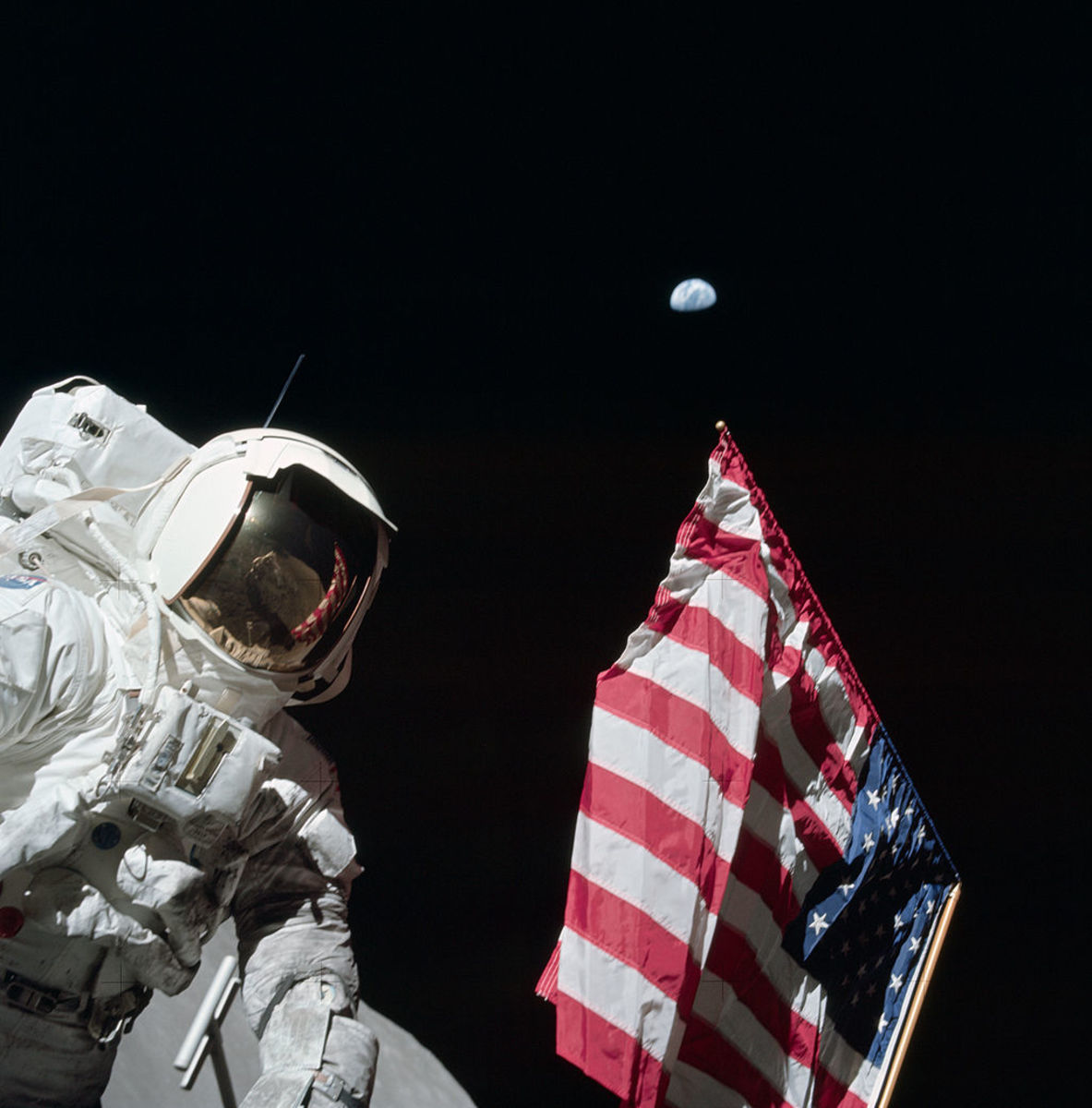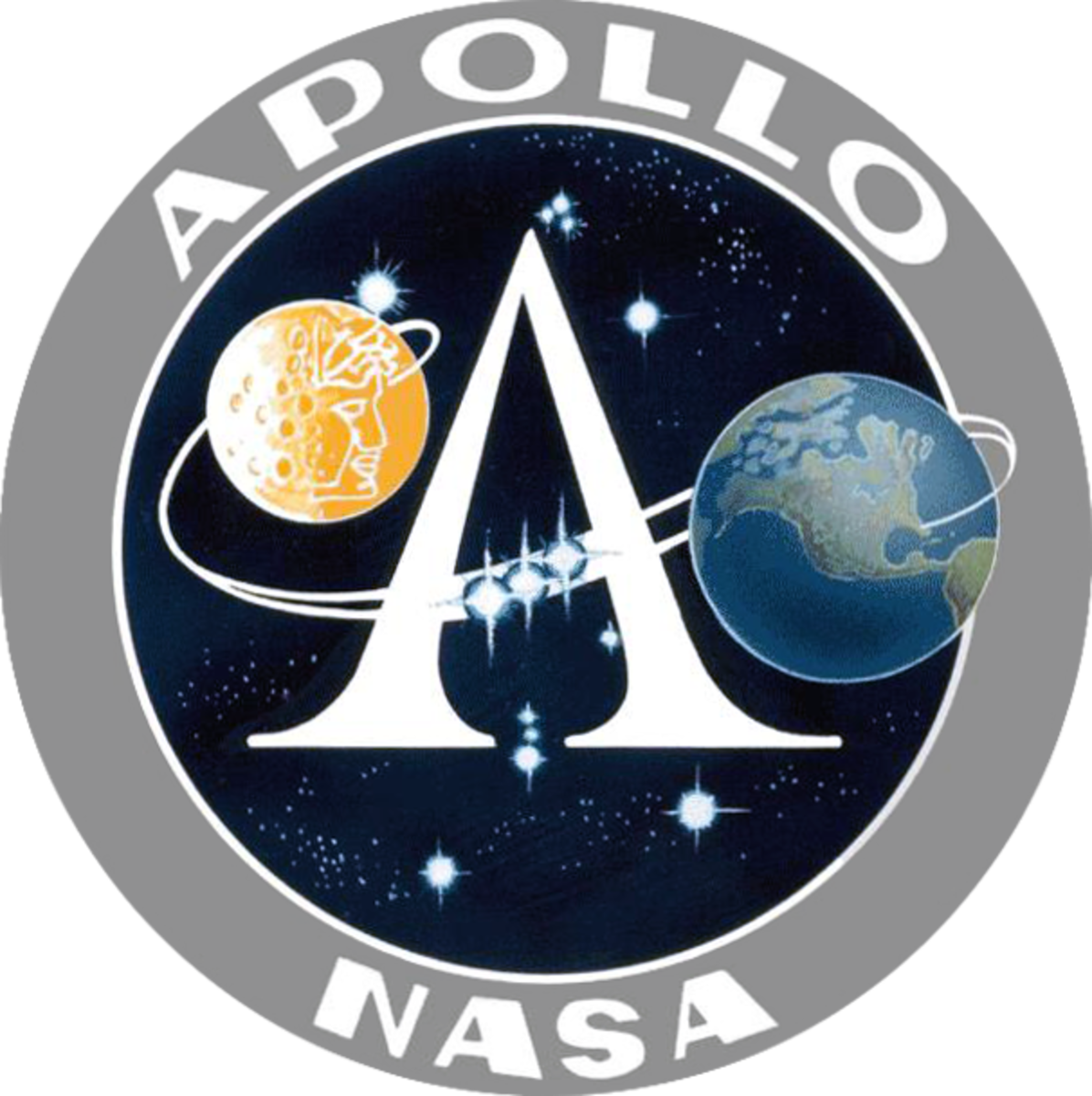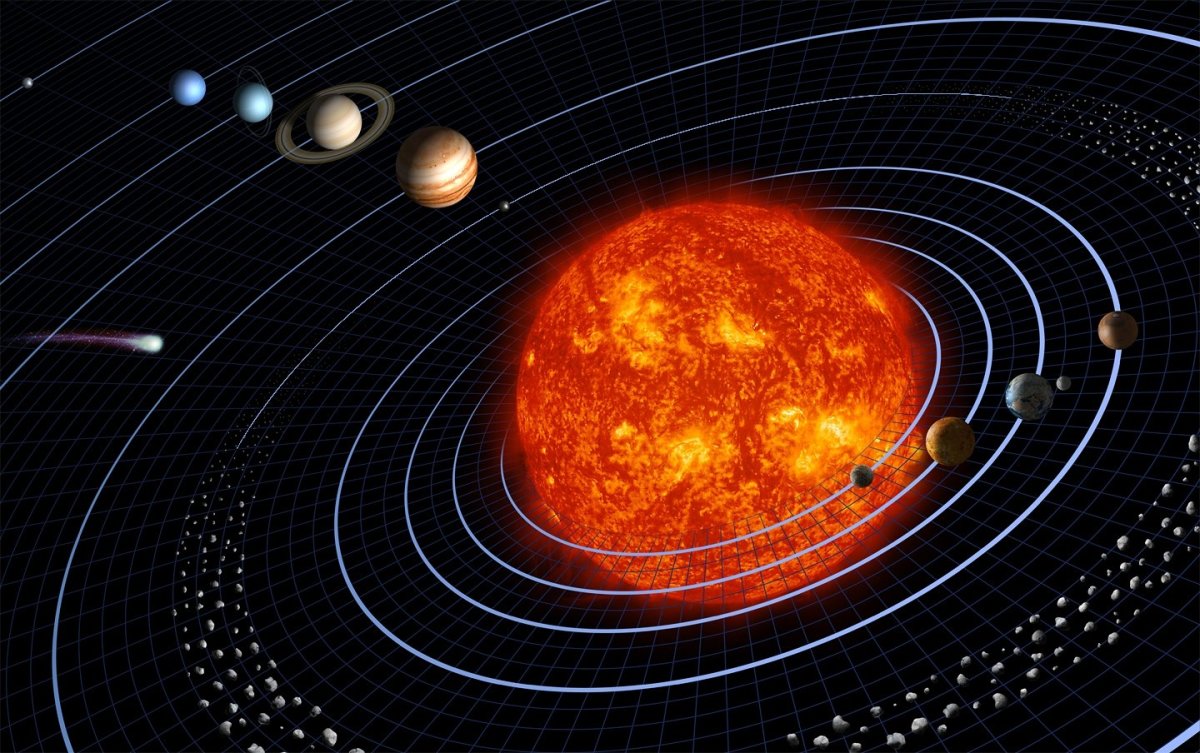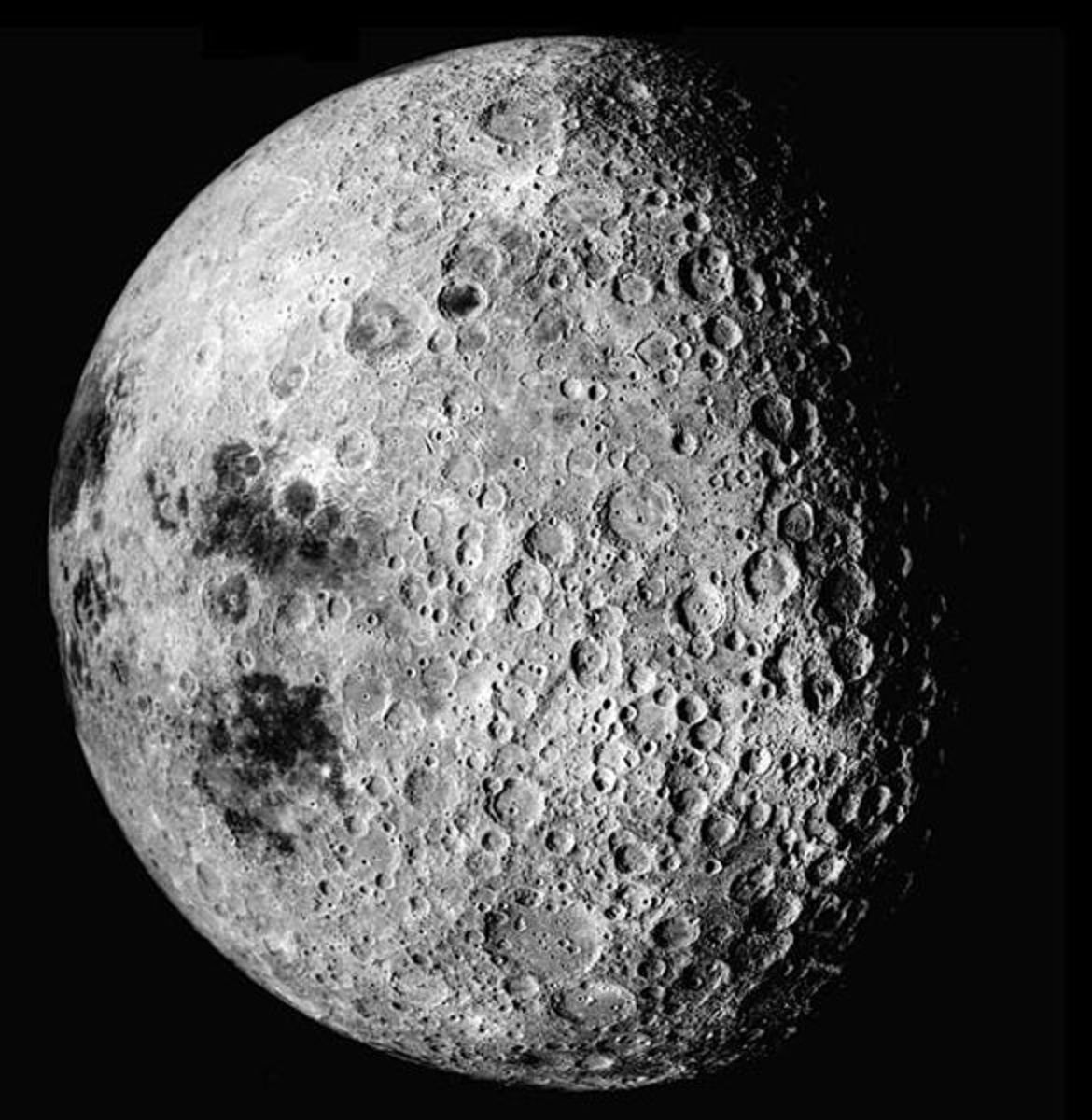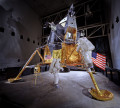America and The Space Race: What Happened?
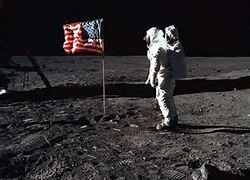
I am one of those lucky ones who was a wide-eyed child full of wonder and amazement as America challenged itself and the world to join the Space Race and land a man on the moon before the end of the 1960's. In July of 1969, we did it. How many of you remember that day?
How many of you sat in front of the television, listening to the news announcers tell us what was happening those thousands of miles away in the nothingness of space? Do you remember the "artist's rendering" of the space capsule traveling through space to the moon? Did you jump for joy when Neil Armstrong uttered those words from a quarter of a million miles away, "That's one small step for man, one giant leap for mankind."?
I was.
Now before some of you jump up and say "Hey! We are still in space!" let me say that I know we are, but is it as exciting as it was way back then? And I realize that the new can and usually does wear off something when we see it again and again, but Space? How does exploration into somewhere Man has never been before wear off? I mean, this is the Final Frontier, right?
Once we had landed on the Moon I realize things changed. It was dead, nothing really there to speak of. But the possibilities seem endless for using it as a starting point to explore the Solar System, the Universe, the Stars. Do we really know what is under the crust of the Moon? Under the surface? Are there materials which could be utilized to build ships to cruise the Solar System?
I suppose what I am saying is this: Why did we stop? We just halted all exploration on the Moon and turned our eyes toward unmanned craft tripping around the planets. We built a giant telescope which purportedly can "see" the beginning of the Universe. Supposedly we can also "hear" the Big Bang which scientists say created the heavens, but who can say, really? It takes pictures of places far, far away and then the scientists tell us something momentous has occurred but who among us gets as excited as those of us who watched the first Man on the Moon? What unmanned flight to Mars is as exciting as the flight of Apollo 13?
There have been so many great movies to fill the void, ranging from The Right Stuff to Apollo 13; documentaries galore from The Race for Space and From The Earth To The Moon. About all there is to peak anyone's interest in space anymore are the video games for the youth of the world and they cannot look beyond their screen to see what really awaits their imagination should they dare to dream.
If I recall correctly, in The Right Stuff it was made mention that the men, those wonderful astronauts were what gave NASA the funding they required to search the stars. The quote was something like "No Buck Rogers, no bucks" or something to that effect. To me, that is where we have gone wrong. We cut the last exciting point for the world to be a part of, the participants of the Shuttle, out of the equation in order to "streamline" costs and explore more. Well, that may be true but I would be a lot more into the exploration if there was someone to peak my interest beyond a little remote control vehicle trudging around on the surface of Mars taking pictures. It just doesn't capture me the way an Astronaut did.
Who among you remembers sitting beside the television as the first Shuttle came back to Earth? I was in college, and the entire dorm was stationed in the rec room, all 400 of us. When that craft landed, we erupted. Shouts, tears, fist pumping, back slapping like you wouldn't believe. It did not matter who you were that day, you were an American and your crew had landed safely.
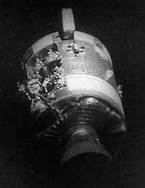
Do you like the direction space exploration is going or would you like to see men back in the ships?
Let's back up for a moment here, if you don't mind. Do you recall the flight of Apollo 13? Of the accident involving that little $2.00 switch which shorted out and almost caused those three astronauts to die 170,000 miles from home? Do you remember in the movie how everyone pulled together to bring those men home? How the Lunar Lander was a home for them because of the problems with the power source on the orbiter? How they "engineered" the air scrubbers and figured out a way to make the batteries last long enough to restart everything and get them home?
Who among you would have the confidence today to be on that ship, adrift in space waiting for those below to do the same thing again; to have the confidence that they would come up with something and that it would work? Not me; not the way things are designed today nor the manner in which they are built. Those items were over-engineered so much that they stood up to the test. Today's parts are designed to meet the need with no eye towards what might be.
Take the batteries on the flight. Built right here in Joplin, Mo at Eagle Picher Industries. I worked for them in the mid 80's and spoke with some of the design engineers about that flight. It was eye opening, to say the least. They shared details not mentioned in the movie or in any documentary I have ever seen. How they tested them before the flight, under unimaginable stresses and loads, time and again. How they were called in from here to Houston to research how to make them last far beyond what they were supposed to be used for. Times like that make me proud to be an American. But today; do any of us think if these same circumstances were to occur again today would the result be the same or would they perish, drifting in space forever?
Today NASA is full of computer people who read data and interpret it; of dreamers who dream of sending unmanned ships to the far reaches of the galaxy; of people who tell us what we should know, not what we want to know. Somewhat interesting, but not really. I want to know if things like were brought to my attention in the movie 2010, The Year We Make Contact are possible. It really spurred my imagination: Is there really ice and frozen water on Europa? Is it in the least inhabitable? What about Ganymede? Io? Do any of these planets possess the possibility to support an operation to search the stars? To support life? Can we make a rocket that uses hydrogen out from water? So many questions!!
My imagination wants to soar among the stars again, seek out those new worlds where life might be possible. I want to see, to hear about a man or woman flying along at the speed of light as they leave our Solar System en route to another.
Jules Verne and H.G. Wells both wrote about traveling to the moon over a hundred years ago, and we used that as a blueprint to achieve a goal set forth by President Kennedy. When they wrote their stories, it was viewed as pure fiction, science fiction. Impossible, beyond the scope of something which could be accomplished by Man.
But we did it.
Why did we stop there? In James A. Michener's wonderful novel Space, Michener speaks about the mistake of aiming for the Moon. One of his charactor's stated that if we aim there, we will be stuck there and never get off. We will have set our sights far too low and once that goal is achieved we will turn our eyes elsewhere, we will flounder and be hard pressed to move outward beyond the Moon. I fear he was right. We are at a standstill as far as manned exploration goes, and now that the Space Shuttle has effectively halted, what next?
Will it be a private individual or corporation who steps up to fill the void left by NASA? Will someone build a starship, board it and soar through the atmosphere on their way to somewhere we can only imagine?
While I realize that there are so many pressing issues here on Earth that require our attention and our dollars I still feel we owe it to our children to explore every avenue we can in this regard. Perhaps if we took some of the money supplied to those who are unemployed, or are on various welfare programs and required them to work at something, or be trained for something in the Space Exploration field we might accomplish more. Money well spent, so to speak. Perhaps if we halted the flow of money to other countries as aid to some ridiculous dictator or similar situation and turned that money elsewhere we would be better served. Perhaps even if we simply required those who work on such programs to charge a realistic amount rather than the famous $600 hammer or the $400 toilet seat our money might go even farther than it currently does. Think about the everyday items we have now that came from the exploration of space. Velcro for instance. Research it yourself and see what everyday items we take for granted that were created for and used by manned space flight.
I will end this little diatribe of mine with one of those moments that still send my mind soaring through the galaxy whenever I hear it. I know the words by heart and recite them every single time I hear them. If you know them, say them along with me as you listen to this video below.








